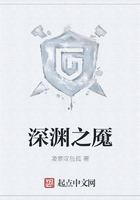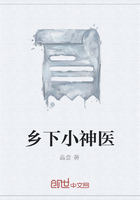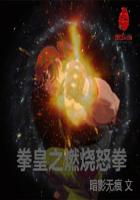The outer gate to the Castle was wider than the opening into many an Edinburgh wynd; but Bobby stopped, uncertain as to where this narrow roadway, that curved upward to the right, might lead.It was not a dark fissure in a cliff of houses, but was bounded on the outer side by a loopholed wall, and on the inner by a rocky ledge of ascending levels.Wherever the shelf was of sufficient breadth a battery of cannon was mounted, and such a flood of light fell from above and flashed on polished steel and brass as to make the little dog blink in bewilderment.And he whirled like a rotary sweeper in the dusty road and yelped when the time-gun, in the half-moon battery at the left of the gate and behind him, crashed and shook the massive rock.
He barked and barked, and dashed toward the insulting clamor.The dauntless little dog and his spirited protest were so out of proportion to the huge offense that the guard laughed, and other soldiers ran out of the guard houses that flanked the gate.They would have put the noisy terrier out at once, but Bobby was off, up the curving roadway into the Castle.The music had ceased, and the soldiers had disappeared over the rise.Through other dark arches of masonry he ran.On the crest were two ways to choose--the roadway on around and past the barracks, and a flight of steps cut steeply in the living rock of the ledge, and leading up to the King's Bastion.Bobby took the stairs at a few bounds.
On the summit there was nothing at all beside a tiny, ancient stone chapel with a Norman arched and sculptured doorway, and guarding it an enormous burst cannon.But these ruins were the crown jewels of the fortifications--their origins lost in legends--and so they were cared for with peculiar reverence.
Sergeant Scott of the Royal Engineers himself, in fatigue-dress, was down on his knees before St.Margaret's oratory, pulling from a crevice in the foundations a knot of grass that was at its insidious work of time and change.
As Bobby dashed up to the citadel, still barking, the man jumped to his feet.
Then he slapped his thigh and laughed.Catching the animated little bundle of protest the sergeant set him up for inspection on the shattered breeching of Mons Meg.
"Losh! The sma' dog cam' by 'is ainsel'! He could no' resist the braw soldier laddies.'He's a dog o' discreemination,' eh? Gin he bides a wee, noo, it wull tak' the conceit oot o' the innkeeper." He turned to gather up his tools, for the first dinner bugle was blowing.Bobby knew by the gun that it was the dinner-hour, but he had been fed at the farm and was not hungry.He might as well see a bit more of life.He sat upon the cannon, not in the least impressed by the honor, and lolled his tongue.
In Edinburgh Castle there was nothing to alarm a little dog.A dozen or more large buildings, in three or four groups, and representing many periods of architecture, lay to the south and west on the lowest terraces, and about them were generous parked spaces.Into the largest of the buildings, a long, four-storied barracks, the soldiers had vanished.And now, at the blowing of a second bugle, half a hundred orderlies hurried down from a modern cook-house, near the summit, with cans of soup and meat and potatoes.The sergeant followed one of these into a room on the front of the barracks.In their serge fatigue-tunics the sixteen men about the long table looked as different from the gay soldiers of the march as though so many scarlet and gold and bonneted butterflies had turned back into sad-colored grubs.
"Private McLean," he called to his batman who, for one-and-six a week, cared for his belongings, "tak' chairge o' the dog, wull ye, an' fetch 'im to the non-com mess when ye come to put ma kit i' gude order."Before he could answer the bombardment of questions about Bobby the door was opened again.The men dropped their knives and forks and stood at attention.
The officer of the day was ****** the rounds of the forty or fifty such rooms in the barracks to inquire of the soldiers if their dinner was satisfactory.
He recognized at once the attractive little Skye that had taken the eyes of the men on the march, and asked about him.Sergeant Scott explained that Bobby had no owner.He was living, by permission, in Greyfriars kirkyard, guarding the grave of a long-dead, humble master, and was fed by the landlord of the dining-rooms near the gate.If the little dog took a fancy to garrison life, and the regiment to him, he thought Mr.Traill, who had the best claim upon him, might consent to his transfer to the Castle.After orders, at sunset, he would take Bobby down to the restaurant himself.
"I wish you good luck, Sergeant." The officer whistled, and Bobby leaped upon him and off again, and indulged in many inconsequent friskings."Before you take him home fetch him over to the officers' mess at dinner.It is guest night, and he is sure to interest the gentlemen.A loyal little creature who has guarded his dead master's grave for more than eight years deserves to have a toast drunk to him by the officers of the Queen.But it's an extraordinary story, and it doesn't sound altogether probable.Jolly little beggar!" He patted Bobby cordially on the side, and went out.















